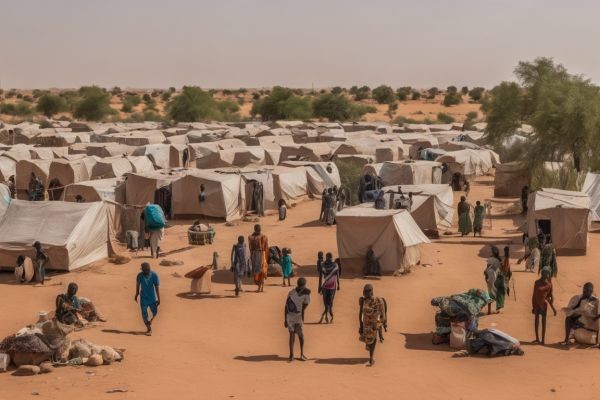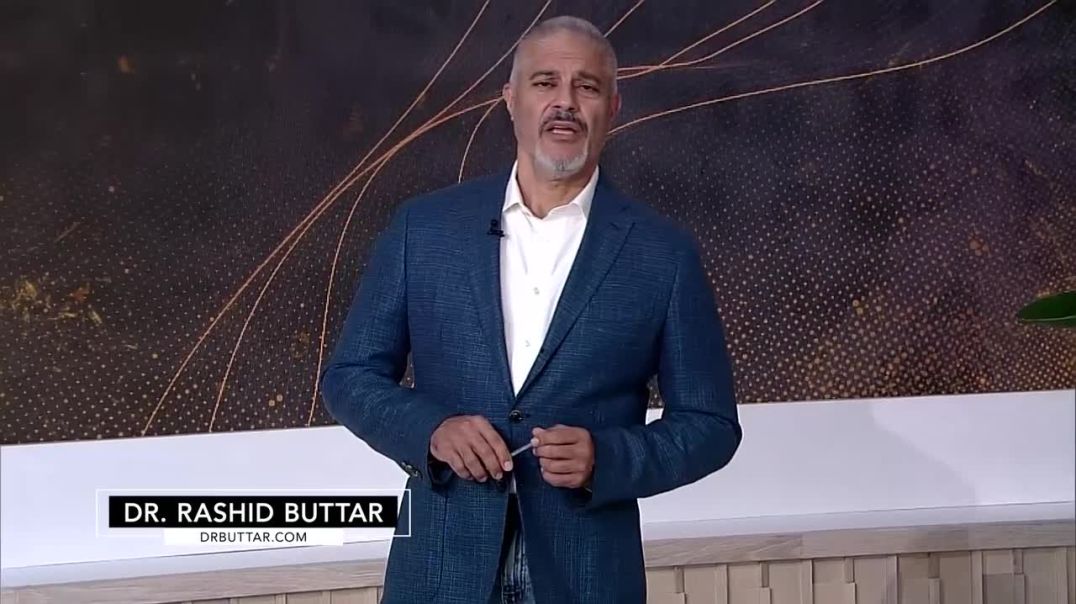by - L. Richardson
The United Nations' push for digital ID surveillance of refugees in Burkina Faso is a disturbing move toward oppression and exploitation. Resist UN Digital ID Surveillance Burkina Faso as this system threatens to strip refugees of their privacy, autonomy, and dignity under the guise of humanitarian aid.
Voices from the grassroots opposing the UN's draconian Digital ID scheme are rising. This grassroots Data Sovereignty Initiative is a beacon of hope against this exploitative biometrics program. The Resistance Against UN Surveillance aims to protect vulnerable populations from Digital ID Oppression and safeguard their human rights from the UN's overreaching data collection practices.
UN's Digital ID Strategy
The UN's Digital Identity and Inclusion Strategy is a sinister ploy to strip refugees of their privacy and autonomy. Under the guise of providing legal identity and access to services, this oppressive scheme aims to subject vulnerable populations to invasive biometric surveillance and data exploitation.
Deceptive Agenda
- The strategy deceptively claims to prioritize legal identity for all. Still, its true objective is to establish a foundational digital identity system that enables relentless tracking and monitoring of refugees, asylum seekers, and stateless individuals.
- By supporting integrated national identity systems, the UN seeks to create a centralized database of biometric data, enabling unprecedented levels of control and oppression over those fleeing conflict and persecution.
Erosion of Fundamental Rights
- This digital ID strategy blatantly disregards the fundamental rights of refugees, subjecting them to:
- Invasive data collection practices
- Erosion of privacy and autonomy
- Potential misuse of sensitive information
- Rather than empowering refugees, the UN's strategy threatens to further marginalize and exploit these vulnerable groups, stripping them of their dignity and self-determination.
Resisting Digital Oppression
The Resistance Against UN Surveillance vehemently opposes this draconian digital ID scheme, advocating for the protection of refugees' rights and the preservation of their autonomy. The Data Sovereignty Initiative seeks to safeguard vulnerable populations from the UN's overreaching data collection practices and biometric exploitation, ensuring that humanitarian aid is distributed with integrity and without compromising the privacy and dignity of those in need.
Burkina Faso's Crisis
A Humanitarian Catastrophe Fueled by Conflict
The crisis in Burkina Faso is a devastating humanitarian catastrophe fueled by chronic insecurity, resource scarcity, and the destabilizing presence of violent non-state actors affiliated with the Islamic State and al-Qaeda. This volatile situation has left the Central Sahel region, including Burkina Faso, in turmoil.
- Staggering Displacement Crisis
- As of May 2021, rampant insecurity had forced a staggering 1.2 million Burkinabés out of their homes, accounting for a significant portion of the country's 20 million population.
- The number of displaced people in Burkina Faso more than doubled compared to early 2020, exacerbating the crisis.
- Overwhelming Humanitarian Needs
- The escalating conflict has left 3.5 million people, nearly one-fifth of the population, in dire need of humanitarian assistance.
- Burkina Faso also hosts close to 20,000 refugees and asylum seekers from the wider region, further straining limited resources [1].
Country / Displaced Population
Nigeria / 3,578,996
Burkina Faso / 2,062,534
The staggering displacement crisis and overwhelming humanitarian needs in Burkina Faso underscore the urgency of addressing the root causes of conflict and instability in the region. The UN's draconian digital ID scheme threatens to exacerbate the suffering of these vulnerable populations, stripping them of their dignity and autonomy under the guise of aid distribution [2].
ECOWAS's Involvement
ECOWAS's Surveillance Agenda
The Economic Community of West African States (ECOWAS) has been actively involved in the region's crisis. Still, its actions raise grave concerns about its true motives and the potential infringement on the rights of vulnerable populations.
- Observation, Monitoring, and Early Warning Centre
- ECOWAS established an Observation, Monitoring, and Early Warning Centre based in Abuja, Nigeria, purportedly to prevent violent extremism in the region.
- Operational since at least 2009, this center claims to employ a "systematized approach to data collection, threat assessment, and reporting" to enable "proactive decision-making."
- ECOWARN: A Thinly Veiled Surveillance Network
- ECOWAS emphasizes the importance of prevention in crisis management, highlighting the implementation of a disaster reduction strategy and the utilization of tools like the ECOWAS Early Warning and Response Network (ECOWARN).
- Established in 2003, ECOWARN is an observation and monitoring center based in Abuja that raises concerns about its true purpose as a surveillance apparatus.
- Collaboration with UNHCR: A Trojan Horse?
- In October 2023, ECOWAS signed an agreement with UNHCR to strengthen collaboration in identifying and "protecting" refugees, stateless persons, and internally displaced persons (IDPs) in the region [3].
- This move coincided with a staggering 6.9 million forcibly displaced individuals in the ECOWAS region, including over 6.3 million IDPs and 624,124 refugees and asylum-seekers.
- Opaque Data Collection Practices
- ECOWAS is ramping up efforts to collect data. However, the specific details of the collected data remain unclear and shrouded in secrecy.
- While ECOWAS claims ECOWARN enables "proactive decision-making to preserve regional stability," its failure to do so in recent years raises suspicions about its true motives and the nature of the data being collected.
Fund Allocation / Amount (USD)
Aid for IDPs, Refugees, and Host Communities / $9 million
Humanitarian Action and Disaster Relief / $4 million
ECOWAS's involvement in the region's crisis is a thinly veiled attempt to establish a pervasive surveillance network under the guise of humanitarian aid and crisis management. The opaque data collection practices and collaboration with entities like UNHCR raise grave concerns about the potential infringement on the rights and autonomy of vulnerable populations, including refugees and internally displaced persons [4].
Concerns and Implications
The UN's Sinister Agenda
- The United Nations' push for digital ID surveillance of refugees in Burkina Faso is a disturbing move toward oppression and exploitation. The ultimate goal of Agenda 2030 is to create a 'singleton' - a world order in which there is a single decision-making agency at the highest level, according to Jacob Nordangård [5].
- The 'Pact for the Future' is described as a global 'coup d'état' by Nordangård, aiming for a worldwide transition by states and non-state actors to a circular economy. This Pact aims to strengthen international cooperation, enable effective response to new threats and opportunities, and secure the interests of future generations by identifying, managing, and monitoring global existential risks.
- The UN's Early Warnings for All (EW4All) initiative, announced in March 2022, calls for every person on Earth to be 'protected' by early warning systems by 2027. This initiative has four pillars led by different UN agencies: disaster risk knowledge, hazard detection and monitoring, warning dissemination, and preparedness to respond.
Erosion of Privacy and Autonomy
- The UN's digital ID strategy blatantly disregards the fundamental rights of refugees, subjecting them to invasive data collection practices, erosion of privacy and autonomy, and potential misuse of sensitive information.
- Rather than empowering refugees, the UN's strategy threatens to further marginalize and exploit these vulnerable groups, stripping them of their dignity and self-determination under the guise of humanitarian aid.
Concern / Implication
Centralized Biometric Database / Unprecedented levels of control and oppression
Integrated National Identity Systems / Relentless tracking and monitoring of refugees
Erosion of Fundamental Rights / Exploitation and marginalization of vulnerable groups
Resisting Digital Oppression
The Resistance Against UN Surveillance vehemently opposes this draconian digital ID scheme, advocating for the protection of refugees' rights and the preservation of their autonomy. The Data Sovereignty Initiative seeks to safeguard vulnerable populations from the UN's overreaching data collection practices and biometric exploitation, ensuring that humanitarian aid is distributed with integrity and without compromising the privacy and dignity of those in need.
FAQs
What are the reasons behind the mass exodus from Burkina Faso?
Armed group attacks have caused a large number of people to flee from their homes in Burkina Faso. This has resulted in a significant displacement towards urban areas, which strains local services and resources and can lead to community tensions.
What prompts migration from Burkina Faso to other countries?
Economic necessity drives people from Burkina Faso's poorest rural regions to migrate to Côte d'Ivoire for employment. This migration is made more accessible by the freedom of movement and low travel costs. Additionally, issues such as child labor and human trafficking are prevalent, particularly in the cocoa plantation industry.
What is the UNHCR's stance on people returning to Burkina Faso?
The UNHCR urges all countries to allow those fleeing Burkina Faso to enter their territories. The agency has issued an advisory against forced returns to Burkina Faso, which will remain in place until a significant improvement in security, legal order, and human rights conditions permits safe and dignified returns.
Which African nation has the highest number of internally displaced persons?
According to the International Organization for Migration (IOM), Sudan has the highest number of internally displaced persons in Africa, with 10.7 million people displaced, 9 million of whom are internally displaced [6] [7]. Most of these displacements have occurred since the outbreak of conflict in April 2023.
References
- Atrocities and Displacement in Burkina Faso - Refugees International. https://www.refugeesinternational.org/reports-briefs/atrocities-and-displacement-in-burkina-faso/
- A Positive Step In Central Africa. https://editorials.voa.gov/a/positive-step-central-africa/1789316.html
- PSCORE submission to the UN Special Rapporteur on Trafficking in Persons and Protection of Refugees, Stateless Persons, and Internally Displaced Persons (IDPs) - PSCORE. http://pscore.org/report/report-on-human-trafficking/
- Peace & Justice: Action alert. https://peace--justice.blogspot.com/2007/09/action-alert.html
- Sotala, K., & Gloor, L. (2017). Superintelligence as a Cause or Cure for Risks of Astronomical Suffering. https://core.ac.uk/download/145643257.pdf
- (2022). Responding to the needs of migrant women in Djibouti. MENA Report, (),.
- Sudan: Government 'in denial' to blame for refugee crisis. https://www.amnesty.org.uk/press-releases/sudan-government-denial-blame-refugee-crisis
- https://www.infowars.com/posts/un-tracking-controlling-refugees-cash-aid-relief-in-burkina-faso-via-digital-ids/
- https://www.naturalnews.com/2024-04-30-un-tracking-refugees-burkina-faso-digital-ids.html
- https://expose-news.com/2024/04/26/burkina-faso-un-is-tracking-refugees-using-digital-ids/
- https://surveillance.news/
- https://www.naturalnews.com/2023-09-12-eu-chief-creation-global-digital-id-system.html
- https://orwellian.news/








